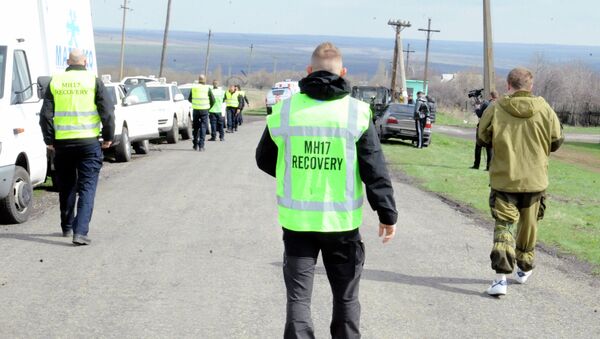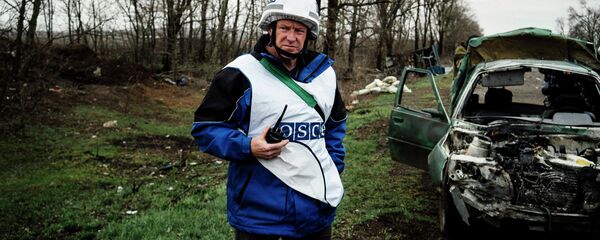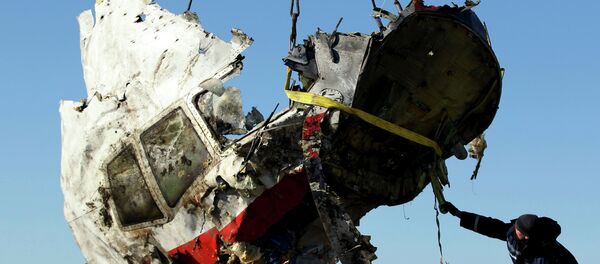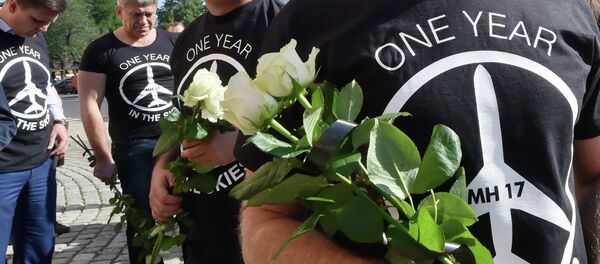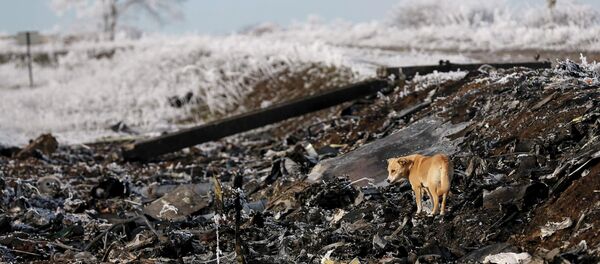“What we have been saying from day one about MH17 [is] it is important that, number one, investigators do have access, and that the effort to recover human remains, personal belongings, debris does happen,” Bociurkiw said when asked about the OSCE’s position on the proposed UN tribunal.
“What we have been saying from day one about MH17 [is] it is important that, number one, investigators do have access, and that the effort to recover human remains, personal belongings, debris does happen,” Bociurkiw said when asked about the OSCE’s position on the proposed UN tribunal.
On Tuesday, Malaysia submitted a draft resolution to the UN Security Council calling for the creations of a UN tribunal to prosecute those who are responsible for the July 17, 2014 downing of MH17 in eastern Ukraine.
Bociurkiw explained that any decisions on the tribunal are made “at a higher political level” than the OSCE.
The OSCE was the first international presence on the scene of the MH17 crash approximately 24 hours after the commercial airliner was shot down.
Also OSCE spokesman Michael Borciurkiw, who was on the scene of crash 24 hours after it occurred, noted that one year after Malaysia Airlines flight MH17 crash in eastern Ukraine OSCE Special Monitoring Mission (SMM) is still facing restricted access on both sides of the conflict.
“We do continue to face unacceptable restrictions on our freedom of movement, and that is on both sides,” Borciurkiw said in an Atlantic Council event on the one year anniversary of the MH17 crash.
Borciurkiw said that free access to observers and investigators in eastern Ukraine remains “the bigger challenge to the mission.”
On July 17, 2014, Malaysia Airlines flight MH17 en route from Amsterdam to Kuala Lumpur, crashed in Ukraine’s eastern region of Donetsk, killing all 298 people on board, mostly Dutch citizens.
Borciurkiw said the Dutch Safety Board had to temporarily stop its investigation in June 2015 “due to lack of access in areas controlled by the so-called LPR [Lughansk People’s Republic].”
Despite the limitations on access, Borciurkiw noted that the OSCE’s SMM in Ukraine “remains the main instrument on the ground” and it will continue to conduct impartial monitoring of the conflict.
Ukrainian government forces, backed by many Western states, and independence supporters in eastern Ukraine have leveled blame at each other for the crash.
According to a preliminary report published by the Dutch Safety Board in September 2014, the MH17 crash was the result of structural damage caused by a large number of high-energy objects.

